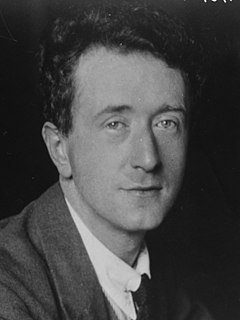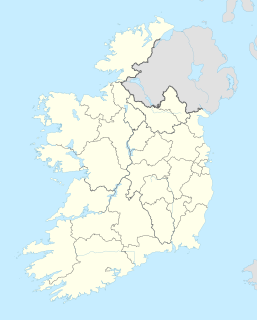Related Research Articles

Edmund Bernard FitzAlan-Howard, 1st Viscount FitzAlan of Derwent, known as Lord Edmund Talbot between 1876 and 1921, was a British Conservative politician and the last Lord Lieutenant of Ireland. He was the first Roman Catholic to be appointed Lord Lieutenant of Ireland since the 17th century, holding office when Ireland was partitioned into Southern Ireland and Northern Ireland.

Garret Desmond FitzGerald was an Irish Fine Gael politician, economist and barrister who served twice as Taoiseach, serving from 1981 to 1982 and 1982 to 1987. He served as Leader of Fine Gael from 1977 to 1987, and was twice Leader of the Opposition between 1977 and 1982; he was previously Minister for Foreign Affairs from 1973 to 1977. FitzGerald served as a Teachta Dála (TD) from 1969 to 1992 and was a Senator for the Industrial and Commercial Panel from 1965 to 1969.

Duke of Leinster is a title in the Peerage of Ireland and the premier dukedom in that peerage. The subsidiary titles of the Duke of Leinster are: Marquess of Kildare (1761), Earl of Kildare (1316), Earl of Offaly (1761), Viscount Leinster, of Taplow in the County of Buckingham (1747), Baron Offaly (1620) and Baron Kildare, of Kildare in the County of Kildare (1870). The viscounty of Leinster is in the Peerage of Great Britain, the barony of Kildare in the Peerage of the United Kingdom, and all other titles in the Peerage of Ireland. The courtesy title of the eldest son and heir of the Duke of Leinster is Marquess of Kildare. The Duke of Leinster is the head of the House of Kildare.

The House of Stuart, originally Stewart, was a royal house of Scotland, England, Ireland and later Great Britain. The family name comes from the office of High Steward of Scotland, which had been held by the family progenitor Walter fitz Alan. The name Stewart and variations had become established as a family name by the time of his grandson Walter Stewart. The first monarch of the Stewart line was Robert II, whose male-line descendants were kings and queens in Scotland from 1371, and of England and Great Britain from 1603, until 1714. Mary, Queen of Scots, was brought up in France where she adopted the French spelling of the name Stuart.

Desmond FitzGerald was an Irish revolutionary, poet, publicist and Fine Gael politician who served as Minister for Defence from 1927 to 1932, Minister for External Affairs from 1922 to 1927, Minister for Publicity from 1921 to 1922 and Director of Publicity from 1919 to 1921. He served as a Teachta Dála (TD) from 1918 to 1938. He was a Senator for the Administrative Panel from 1938 to 1943. He served as a Member of Parliament for Dublin Pembroke from 1918 to 1922.

Lieutenant-General James FitzGerald, 1st Duke of Leinster, PC (Ire), styled Lord Offaly until 1744 and known as The Earl of Kildare between 1744 and 1761 and as The Marquess of Kildare between 1761 and 1766, was an Irish nobleman, soldier and politician.
Richard de Clare, 2nd Earl of Pembroke, Lord of Leinster, Justiciar of Ireland, also known as Richard FitzGilbert, was an Anglo-Norman nobleman notable for his leading role in the Anglo-Norman invasion of Ireland. Like his father, Richard fitz Gilbert has since become commonly known by his nickname Strongbow, which may be a mistranscription or mistranslation of "Striguil".

The FitzGerald/FitzMaurice Dynasty is a Cambro-Norman, Anglo-Norman and later Hiberno-Norman aristocratic dynasty.. They have been peers of Ireland since at least the 13th century, and are described in the Annals of the Four Masters as having become "more Irish than the Irish themselves" or Gaels, due to assimilation with the native Gaelic aristocratic and popular culture. The dynasty has also been referred to as the Geraldines. They achieved power through the conquest of large swathes of Irish territory by the sons and grandsons of Gerald of Windsor. Gerald of Windsor was a Norman castellan in Wales, and he is the male progenitor of the FitzMaurice and FitzGerald Dynasty.

Carton House is a country house and surrounding demesne that was the ancestral seat of the Earls of Kildare and Dukes of Leinster. Located 23 km west of Dublin, in Maynooth, County Kildare, the Carton Demesne is 1,100 acres (4.5 km2). For two hundred years, the Carton Demesne was the finest example in Ireland of a Georgian-created parkland landscape. In the 2000s, much of the demesne was redeveloped into two golf courses and the house into a hotel complex.

The Desmond Rebellions occurred in 1569–1573 and 1579–1583 in the Irish province of Munster.

Dominic Gerard Francis Eagleton West is an English actor, director, and musician. He is best known for playing Jimmy McNulty in The Wire (2002–2008) and Noah Solloway in The Affair (2014–2019), the latter of which earned him a Golden Globe nomination. He won the British Academy Television Award for Best Actor at the 2012 British Academy Television Awards for portraying serial killer Fred West in Appropriate Adult (2011), and he played Jean Valjean in the 2018 BBC miniseries Les Misérables. His film credits include Chicago (2002), 300 (2007), Punisher: War Zone (2008), John Carter (2012), The Square (2017), and Colette (2018). West now plays the role of Dr Chris Cox in the Sky One series Brassic.

From the 12th century onwards, a group of Normans invaded and settled in Gaelic Ireland. These settlers later became known as Norman Irish or Hiberno-Normans. They originated mainly among Cambro-Norman families in Wales and Anglo-Normans from England, who were loyal to the Kingdom of England, and the English state supported their claims to territory in the various realms then comprising Ireland. During the High Middle Ages and Late Middle Ages the Hiberno-Normans constituted a feudal aristocracy and merchant oligarchy, known as the Lordship of Ireland. In Ireland, the Normans were also closely associated with the Gregorian Reform of the Catholic Church in Ireland. Over time the descendants of the 12th-century Norman settlers spread throughout Ireland and around the world, as part of the Irish diaspora; they ceased, in most cases, to identify as Norman, Cambro-Norman or Anglo-Norman.

The history of Ireland from 1169–1536 covers the period from the arrival of the Cambro-Normans to the reign of Henry II of England, who made his son, Prince John, Lord of Ireland. After the Norman invasions of 1169 and 1171, Ireland was under an alternating level of control from Norman lords and the King of England. Previously, Ireland had seen intermittent warfare between provincial kingdoms over the position of High King. This situation was transformed by intervention in these conflicts by Norman mercenaries and later the English crown. After their successful conquest of England, the Normans turned their attention to Ireland. Ireland was made a Lordship of the King of England and much of its land was seized by Norman barons. With time, Hiberno-Norman rule shrank to a territory known as the Pale, stretching from Dublin to Dundalk. The Hiberno-Norman lords elsewhere in the country became Gaelicised and integrated in Gaelic society.
Dermot FitzGerald was a leading Irish businessman and philanthropist. FitzGerald was born in Limerick, Ireland to a southern Irish Protestant family. His father, Gerald FitzGerald, was a bank manager. He attended Wesley College, a prestigious Dublin school run by his maternal uncle Gerald Myles. Upon graduating he joined a host of notable alumni such as playwright George Bernard Shaw and Chaim Herzog, the sixth President of Israel.

The Anglo-Norman invasion of Ireland took place during the late 12th century, when Anglo-Normans gradually conquered and acquired large swathes of land from the Irish, which the Kingdom of England then claimed sovereignty over. At the time, Gaelic Ireland was made up of several kingdoms, with a High King claiming lordship over most of the other kings. The Norman invasion was a watershed in Ireland's history, marking the beginning of more than 800 years of direct English and, later, British involvement in Ireland.

Richard FitzRalph was an Irish Archbishop of Armagh during the 14th century. His thought exerted a significant influence on John Wycliffe's.

Fitzsimons is a surname of Norman origin common in both Ireland and England. The name is a variant of "Sigmundsson", meaning son of Sigmund. The Gaelicisation of this surname is Mac Shíomóin.

Turlough, is a village in County Mayo, Ireland, 6 km northeast of Castlebar. It is known for the presence of the Museum of Country Life, and for its well-preserved and unusually squat round tower, built between 900 and 1200.

The Yeats Room of Ballymaloe House is a restaurant located in Shanagarry in County Cork, Ireland. It is a fine dining restaurant that was awarded one Michelin star for each year in the period 1975–1980. The Michelin Guide awarded the restaurant the "Red M", indicating 'good food at a reasonable price', in the period 1981–1994. The Egon Ronay Guide awarded the restaurant one star in the periods 1975–1981, 1983-1984 and 1987–1988.
Cogar is an Irish television documentary series, shown on the Irish language channel TG4. It focuses on people who have been "ignored" or are at the margins of society.
References
- ↑ Peretti, Jacques (31 July 2000). "Taking the mick". The Guardian . Retrieved 18 April 2010.